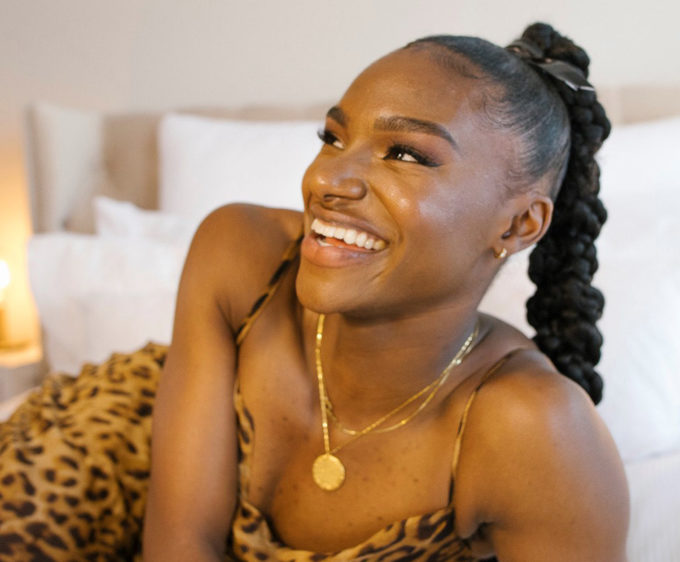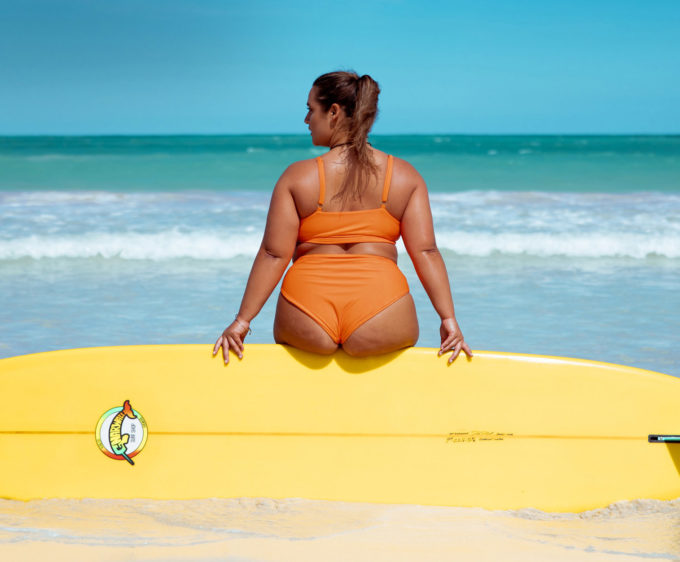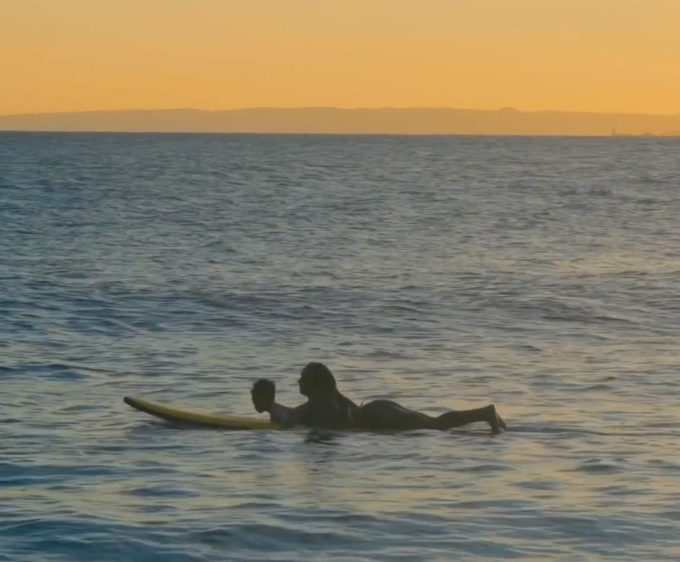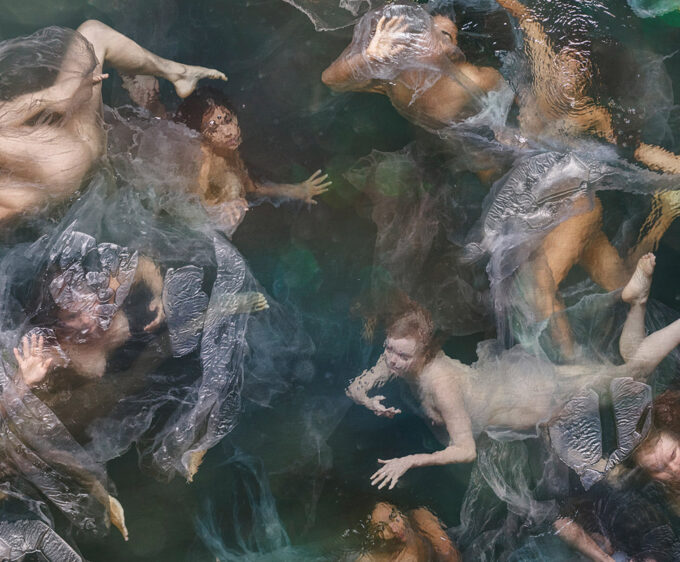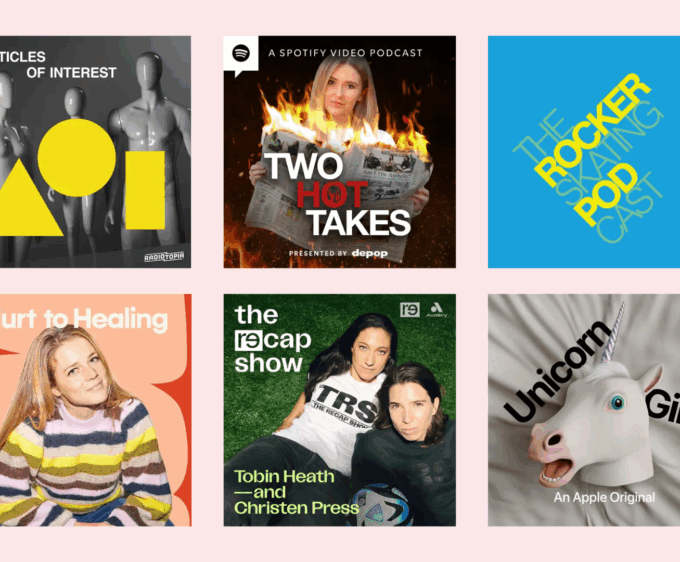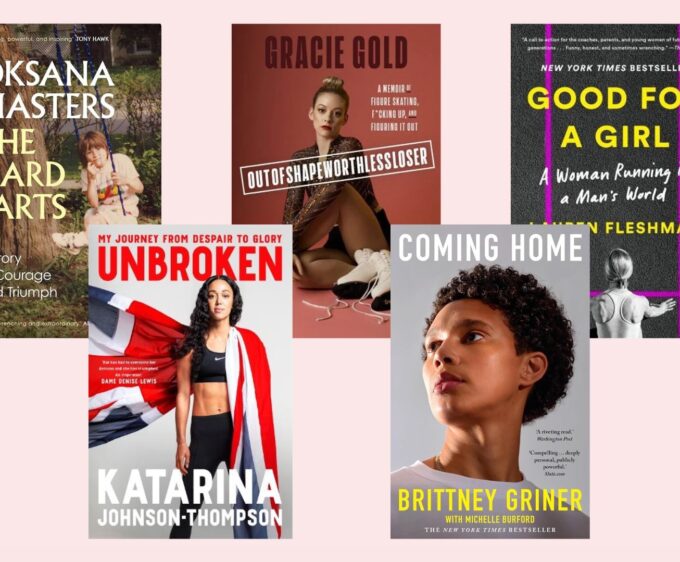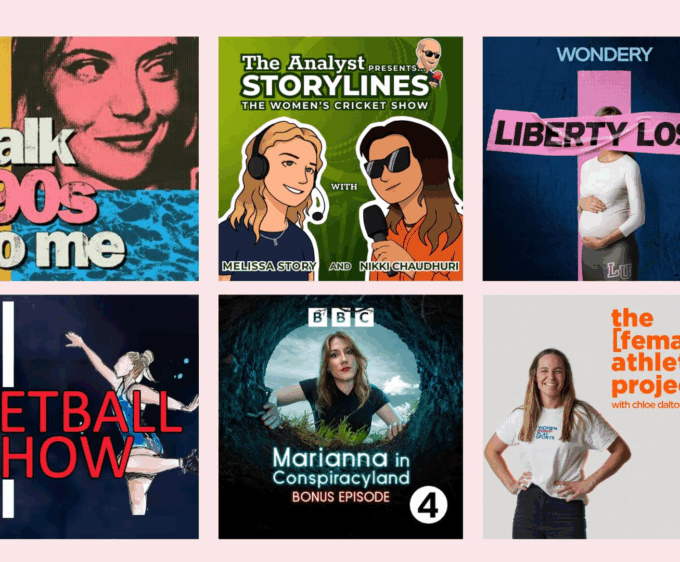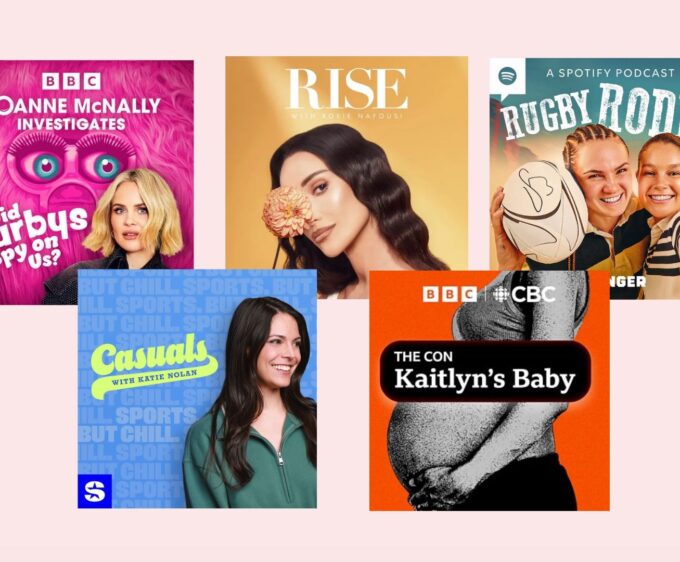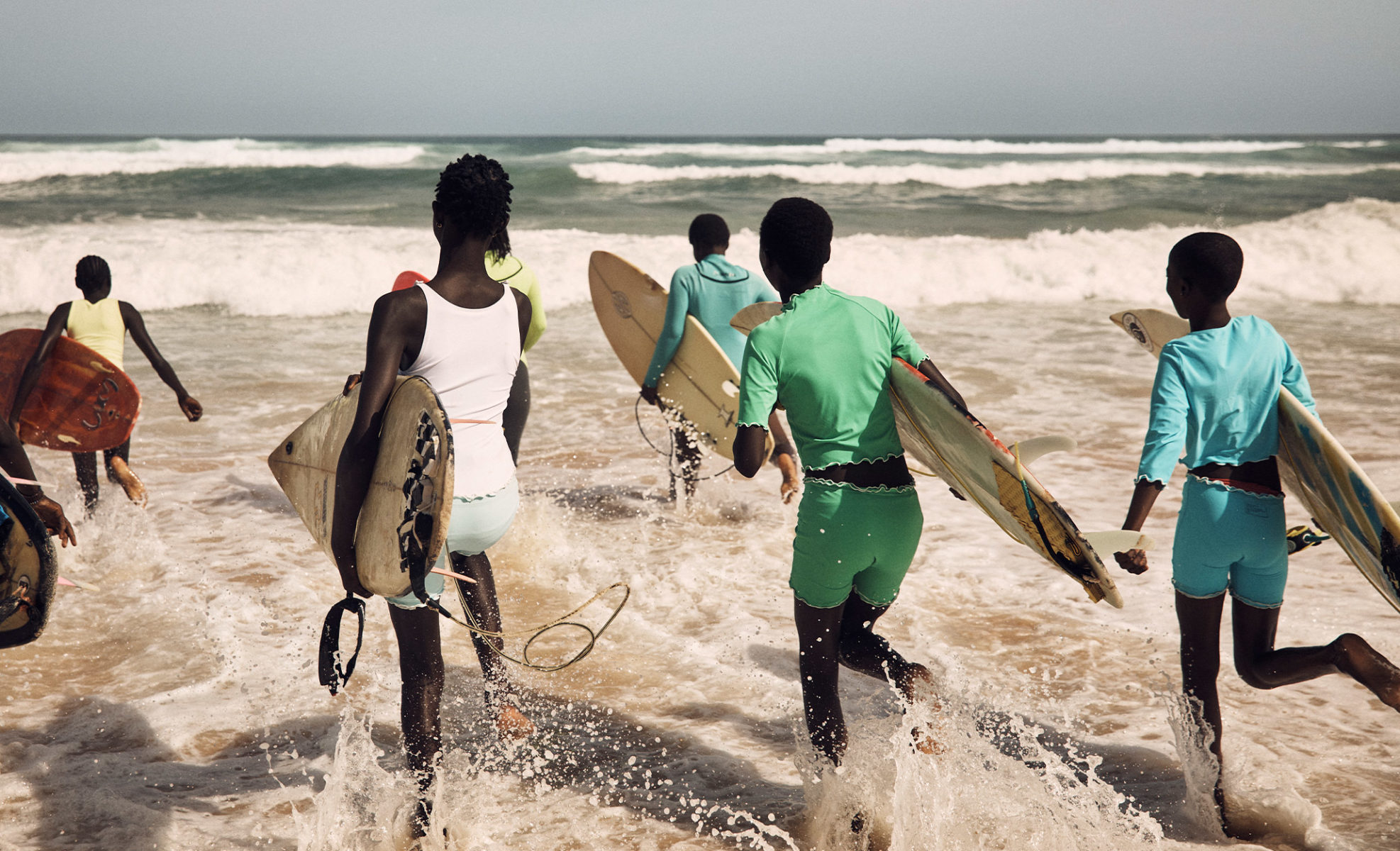
The Surfer Girls of Senegal
Rhonda Harper accidentally found a surf school in Dakar. Now the Californian has made it her home, plans for a bigger and better school and is helping empower local girls for whom surfing was always ‘for the boys’
By Anna Dimond
Photography by Dave Imms
Rhonda Harper was visiting Ngor, a fishing village in Dakar, Senegal, when the pandemic arrived and borders closed, indefinitely. The 50-something founder of Black Girls Surf (BGS), an organisation that creates visibility for black and female surfers, had been working on a documentary with her protégé, Khadjou Sambe, and planned to head home to Santa Cruz, California, when they wrapped. But with flights cancelled and no return date in sight, Rhonda was marooned. She had no job, no place to live and she didn’t speak any of the local languages. Like many others in March 2020, she was stuck.
That’s when opportunity met with inspiration. Just as Rhonda was considering how to rebuild her life in Dakar, the surf school where she and Khadjou filmed, came up for sale. On her visits to the area, she’d already seen that local culture often kept girls and women, including those she trained through BGS, out of male-dominated spaces. Rhonda wasn’t looking to challenge the culture, per se, but saw that the girls could do with a surf room of their own. She purchased the space and a new surf school, Black Girls Surf in Senegal, was born.
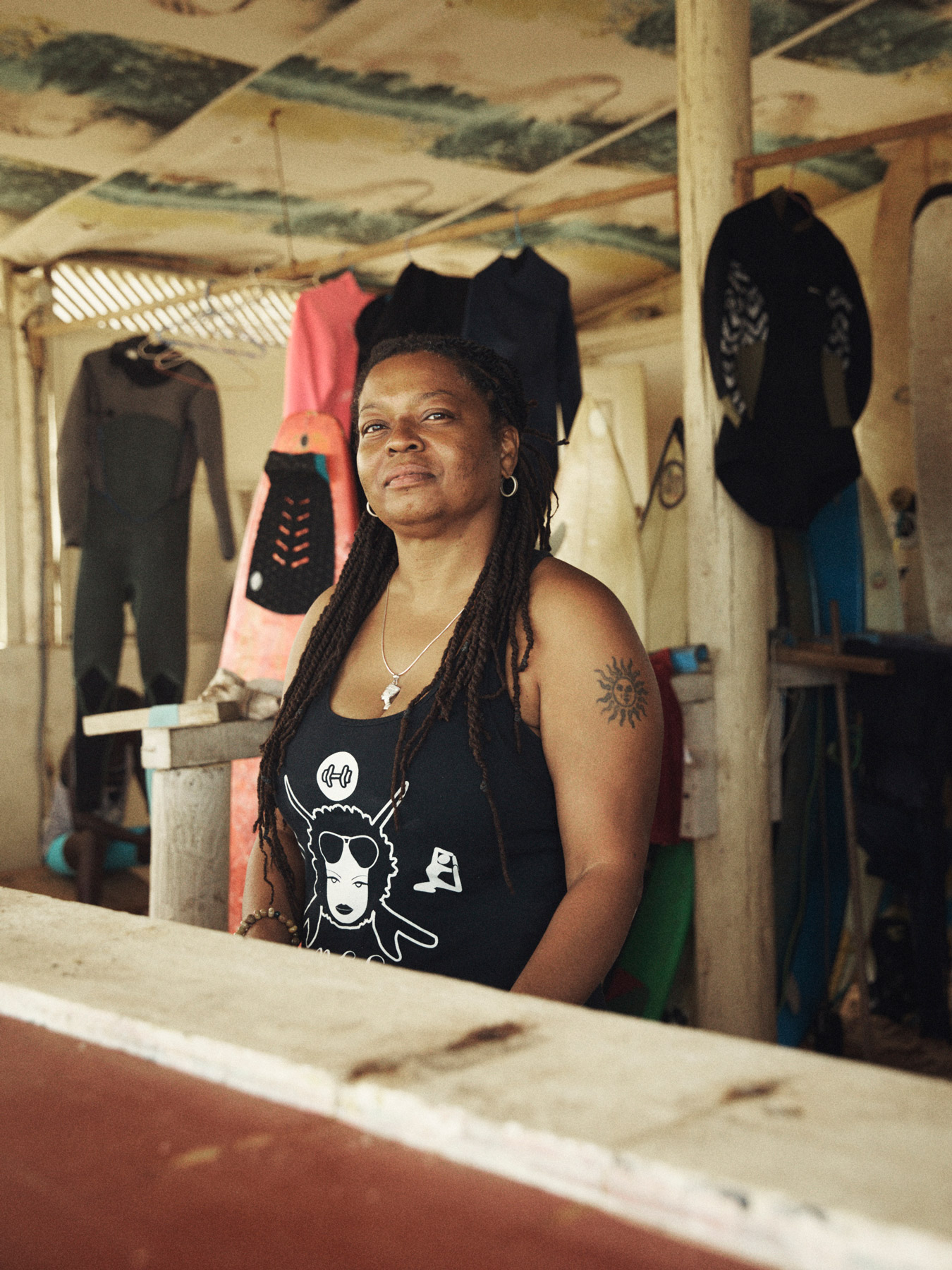
“We wanted to make sure that [the girls] were in a stable environment where they could grow and build on their surfing skills,” says Rhonda. “And now my girls are on their way to the Junior Olympics in 2026.” The BGS location in Senegal is just one manifestation of the organisation. Since launching Black Girls Surf in 2014, Rhonda has trained dozens of girls, and some boys, and garnered global media coverage, from Marie Claire in the UK to Outside magazine in the US. From the start, her goal has been to increase access to surfing for girls of colour, and to create professional pathways for them. While Khadjou did not compete in the 2020 Olympics, as she and Rhonda had planned, she continues to train the next generation of potential competitors at home in Ngor.
Set on Africa’s westernmost point, Senegal has long been known as a wave-rich locale. The BGS surf school, however, has helped put Ngor, specifically, on the surfing map. The previous mayor of the town has been so pleased with the positive attention that Rhonda’s group has drawn that in December 2021, he gifted them with a plot of beach-front land, where they plan to build another, bigger, surf school. The new building, said Rhonda, will have places to sleep for students who need housing and a kitchen to be able to prepare food for them.
EMPOWER
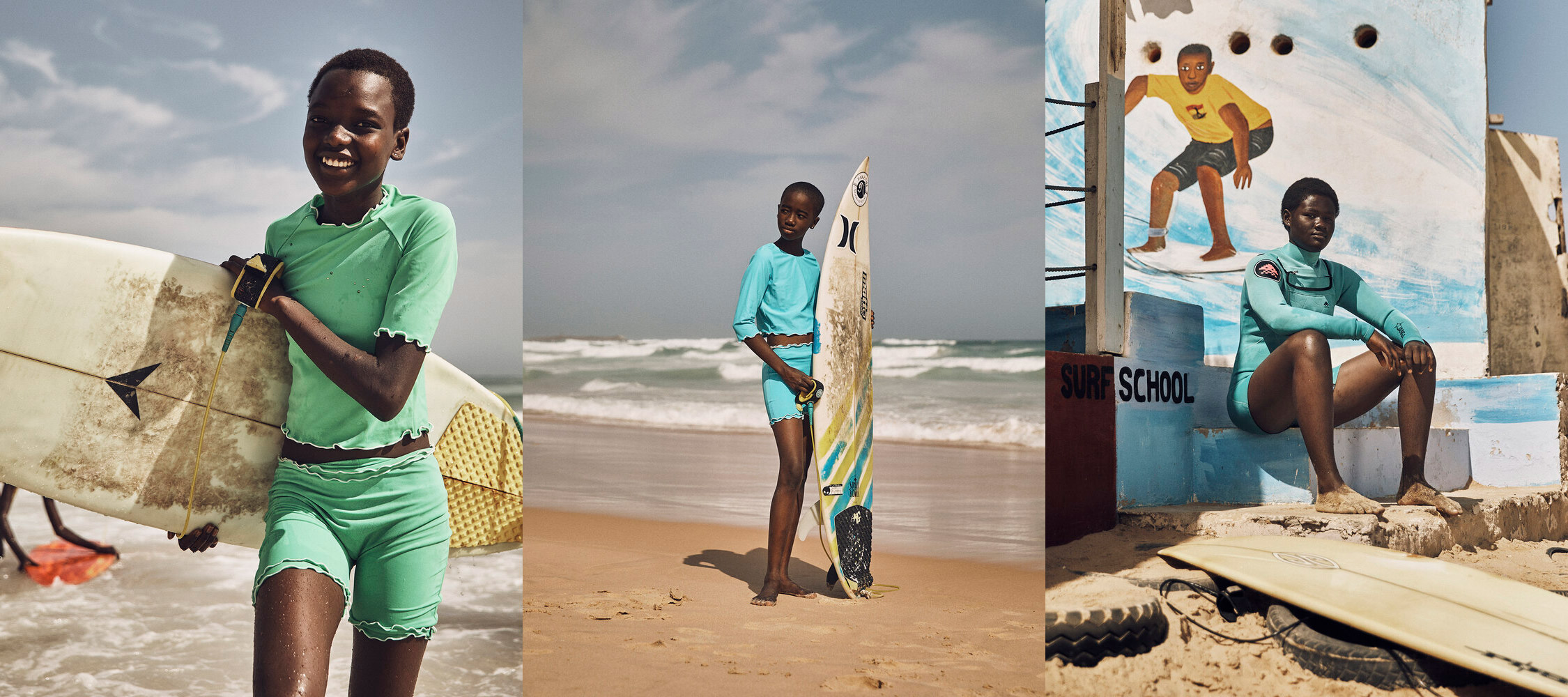
Not everyone, however, initially embraced Rhonda’s vision. “Parents [of the girls] are always a little sceptical about going in the water,” she says. “This part of Dakar is a fishing village. So they’re water people, but still they didn’t want the girls co-mingling with the boys in this surf entity, so we tried to break them up; we don’t have the boys coming in at the same time as the girls and we try to keep that part of their culture.”
In addition to surf training, the BGS programme also provides fitness work, school fees and experiences that many of the students might not have otherwise. Because of socioeconomic constraints a lot of local families don’t send their daughters to school, says Rhonda. So BGS pays the $120 annual fee, works with participants in the water and on the land, and takes them to places like the local shopping mall or art museum.
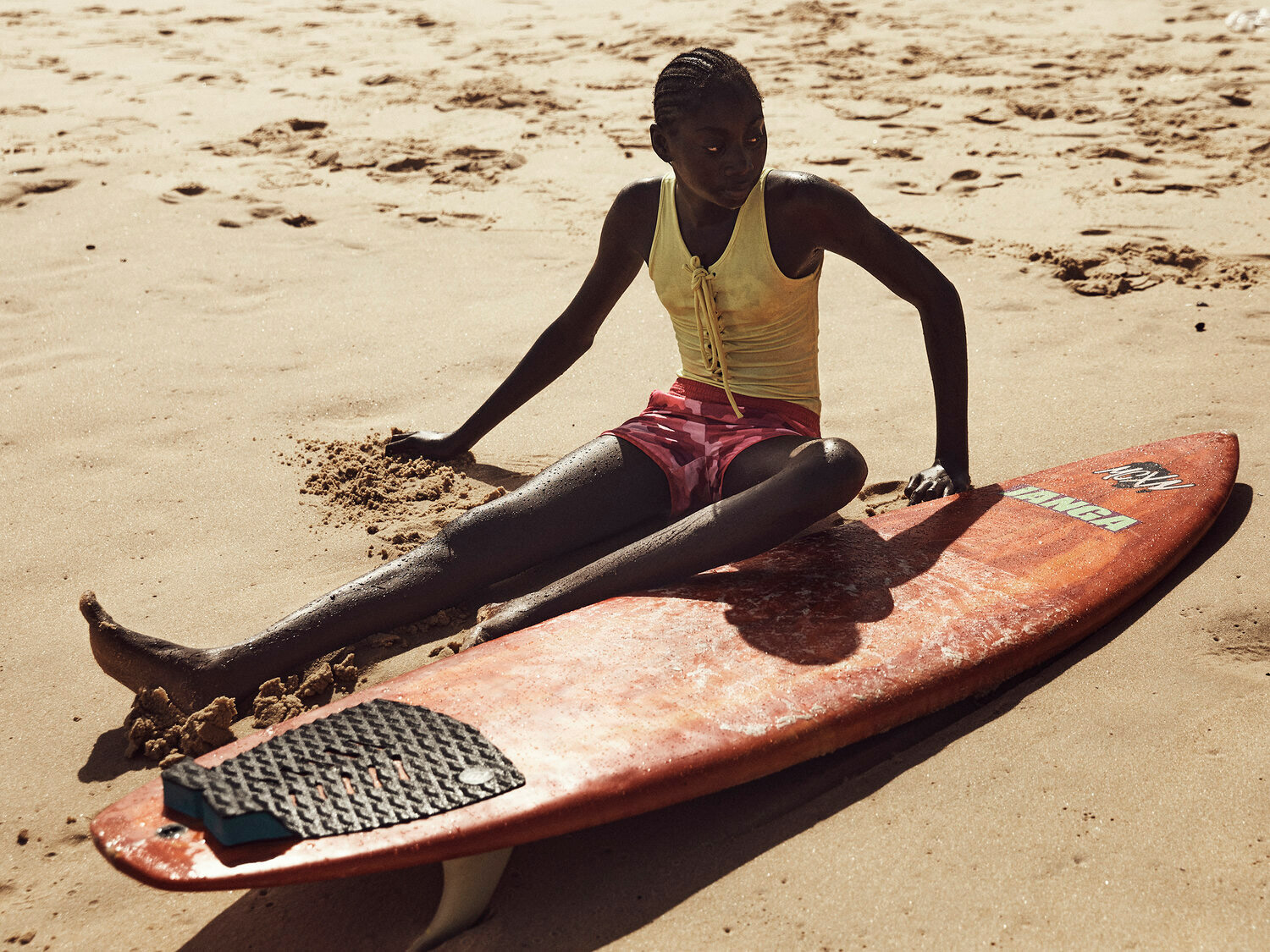
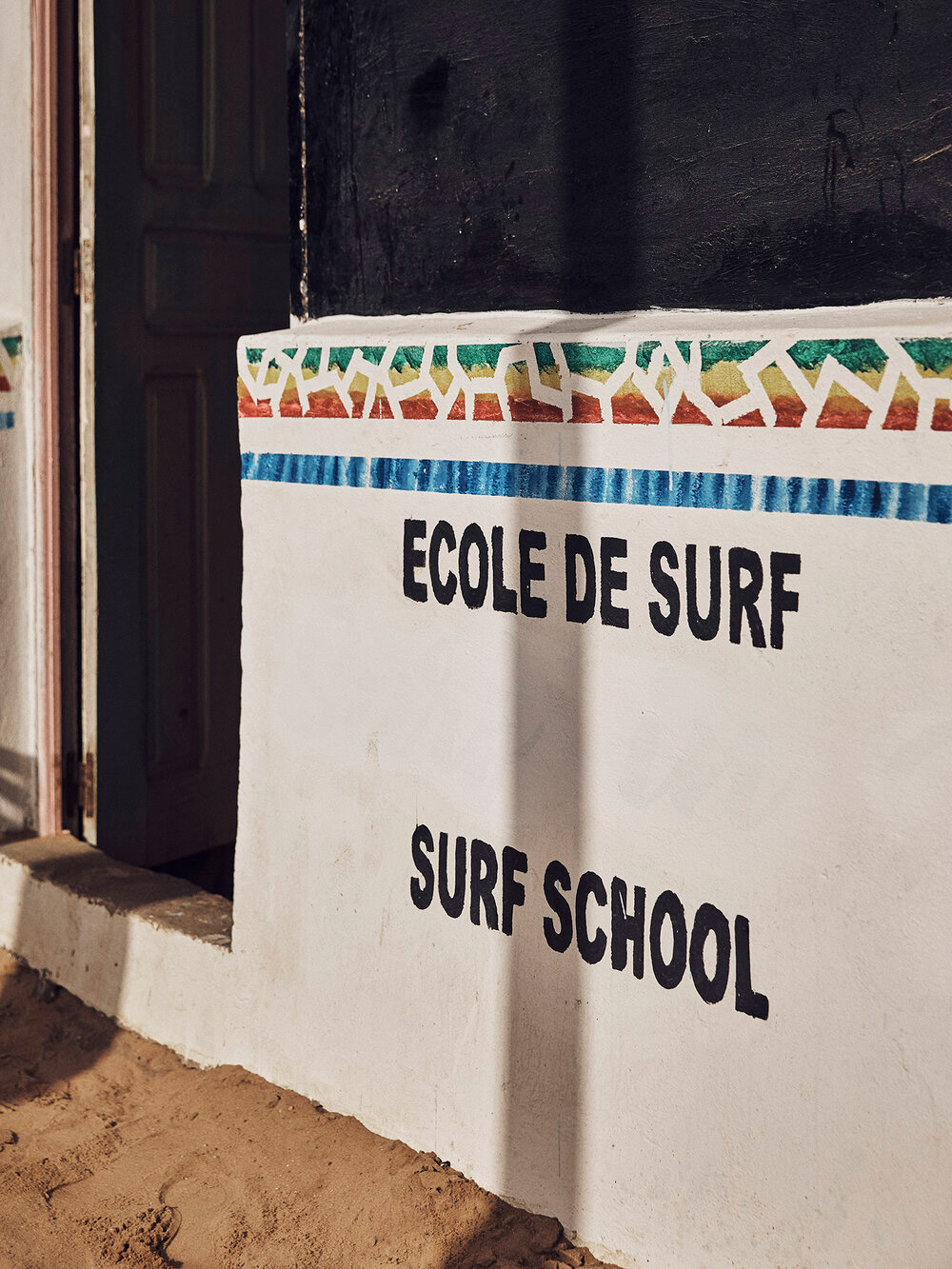
In talking to parents of potential BGS participants, Rhonda frames the programme as being as much about widening horizons as it is about riding waves. “We said ‘Listen, your girls are with us,’” says Rhonda. “And we don’t want them to go into the working field just yet. We want to give them the opportunity to expand their choices, right?’ So we said, ‘We’re going to send these girls to school, and give them an education so they understand that the world is a lot larger than they think.’”
Photographer Dave Imms was on assignment in Yoff, the village where BGS sits, not long after Rhonda had created the surf school. In contrast to the area’s bright murals, clothing and painted signs, he says, the surroundings of the surf school, he says, are a dry and sandy palette of browns and tans, with a splash of green from a small, cultivated tree in the mix. The school itself sits along the Yoff’s seaside promenade. To the back is the main road that runs to the city; to the front, thatched beach huts dot the sand all the way to the water. When Imms visited, the surfers quickly caught his eye. “These young girls were so fearless,” he says. “I’m not sure if all the girls were confident swimmers but they were keen to surf anyway.”
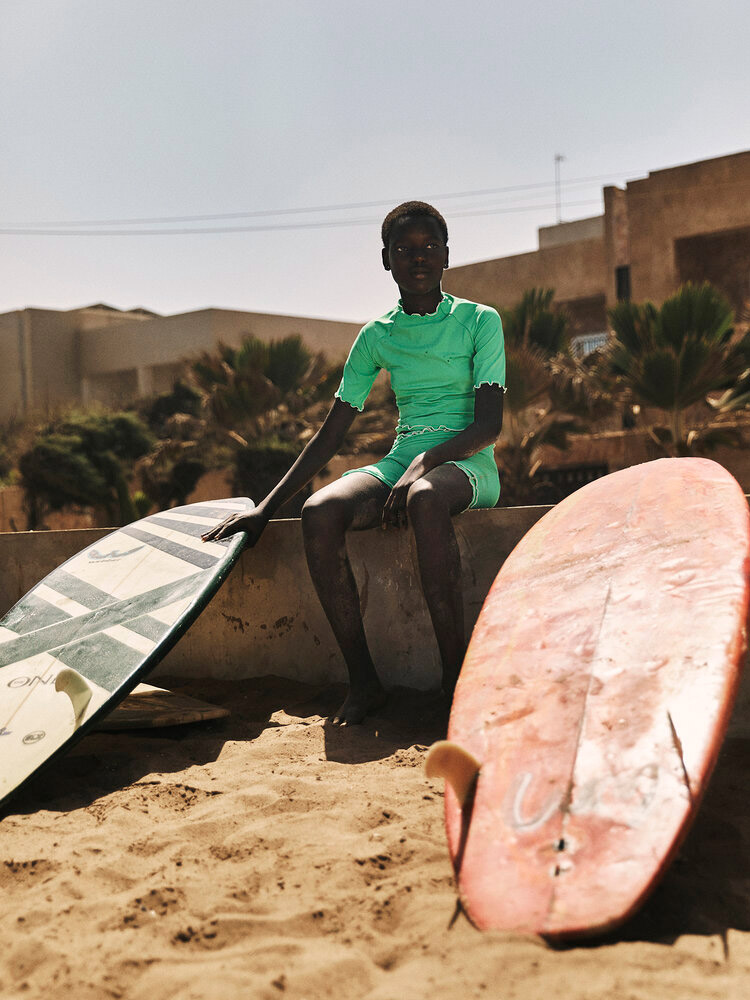
With their permission, Dave captured some of that exuberance through his lens. It was still early days for the school, but he recalls a sense of excitement that transcended the language barrier between him and the students. “The girls were keen to show me everything,” he says. “It was humbling.”
Since then, the programme has continued to grow. As of Rhonda’s latest tally, there are 43 girls and 15 boys in the Ngor programme, of which 5 of each sex are elite surfers. And while most of those participants don’t necessarily have dreams of gold medals or brand sponsorships, Rhonda is intent on creating pathways for more people of colour – not just in the contest lineups, but in the industry infrastructure. Even more than wary parents, Rhonda says her biggest obstacle to building a pipeline of professionals from Senegal is the country’s surf federation, which sanctions and supports licensing for surf clubs and events. And so far, the federation has not recognised Black Girls Surf as an official entity. That decision effectively blocks the group from creating its own contests that can help amateur surfers earn points toward big-league events.
FEARLESS
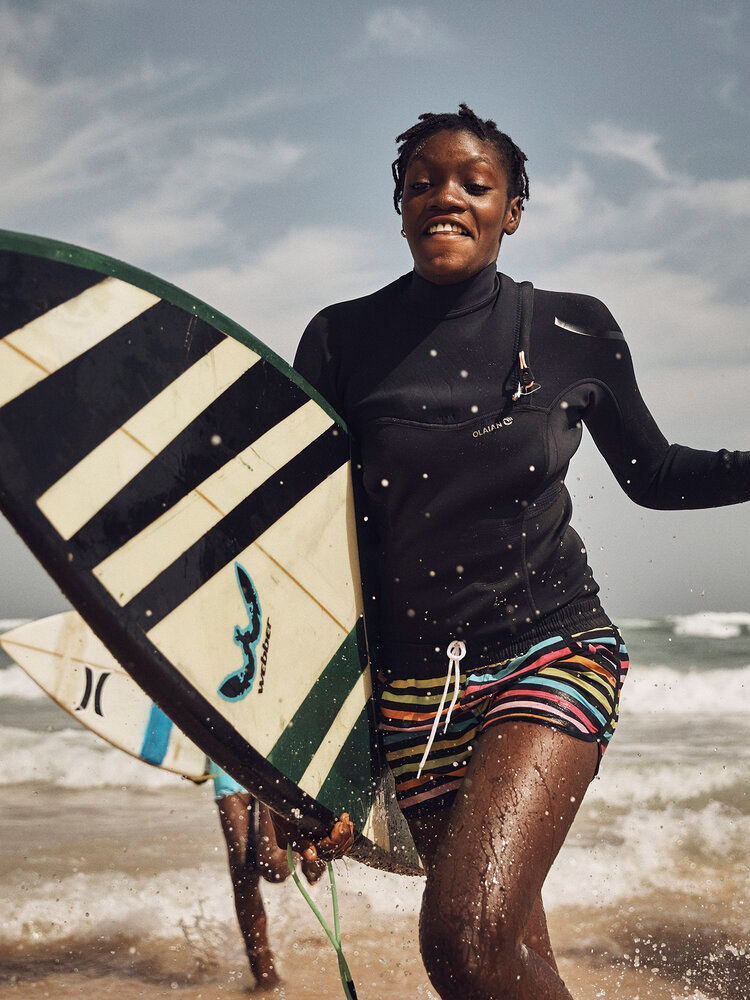
To Rhonda, the reason for their hurdle is clear. “They literally said to the World Surf League [the global sanctioning body for elite surfers], ‘We don’t see women as pro surfers,’” she says. “So we don’t have our licensing.” That stumbling effectively quashed her hopes to create sanctioned, amateur-level events in Senegal. Without licensing, contests don’t carry weight beyond their own waves, leaving competitors without the points they need to progress. Rhonda has since tried to create similar contests in South Africa – also known for its peeling pointbreaks and endless coastline – but there, too, obstacles cropped up. In that case, she says, it wasn’t sanctioning that was the issue, but balking at her requests for representation that went well beyond the waves.
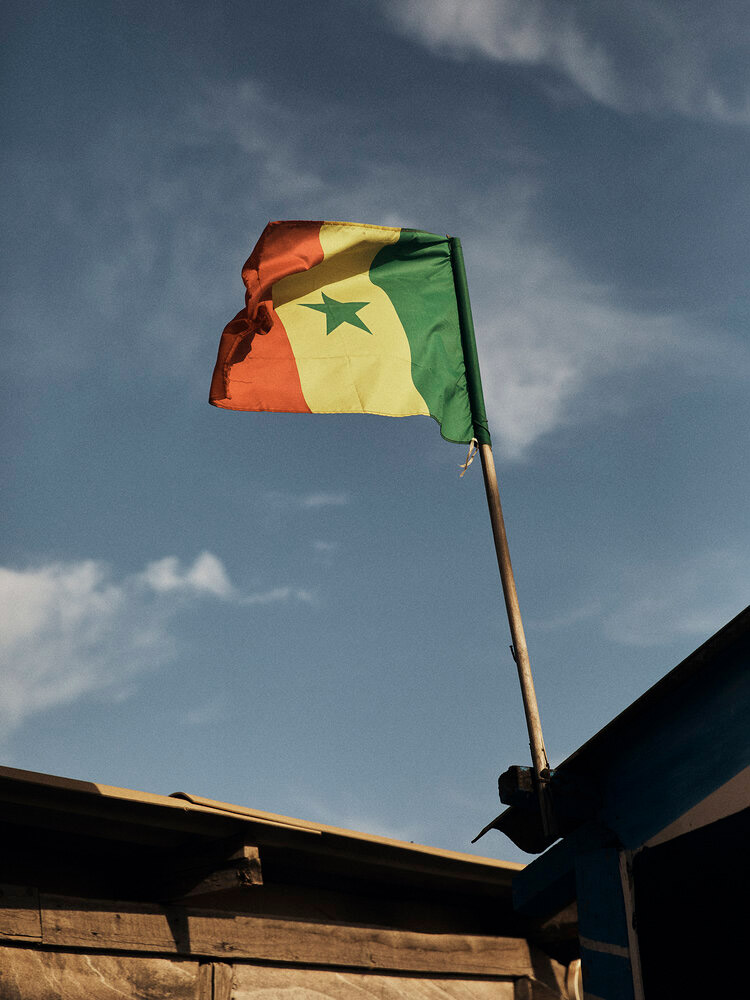
“I wanted diversity in the judging,” she says. “I wanted diversity in the staffing. I want locals hired. Did the back office change? Because you can’t you can’t change the scenery and still have the back office looking exactly the same. “I often asked about the WSL headquarters [in Santa Monica, CA], ‘Are there any black faces in the office yet?’ You can’t make decisions for us if you don’t have somebody there saying yay, or nay.”
To the casual observer, Rhonda’s requests may not seem monumental. After all, diversity in hiring has been a matter of law in numerous countries, including the US, for decades. But the modern industry around surfing, despite its Polynesian roots, was developed mostly by white men on American and Australian shores, starting in the mid-20th century. Which is to say, Rhonda’s vision for surfing has a long way to go. “I backed off a little bit to let them breathe and rethink [things],” she says. “I’ll go back in March because that’s when the season actually starts and say, ‘Okay, what’s changed in the last two years?’ I try to keep up with them every three to six months but after a while, it’s just too much. Too much heartbreak.”
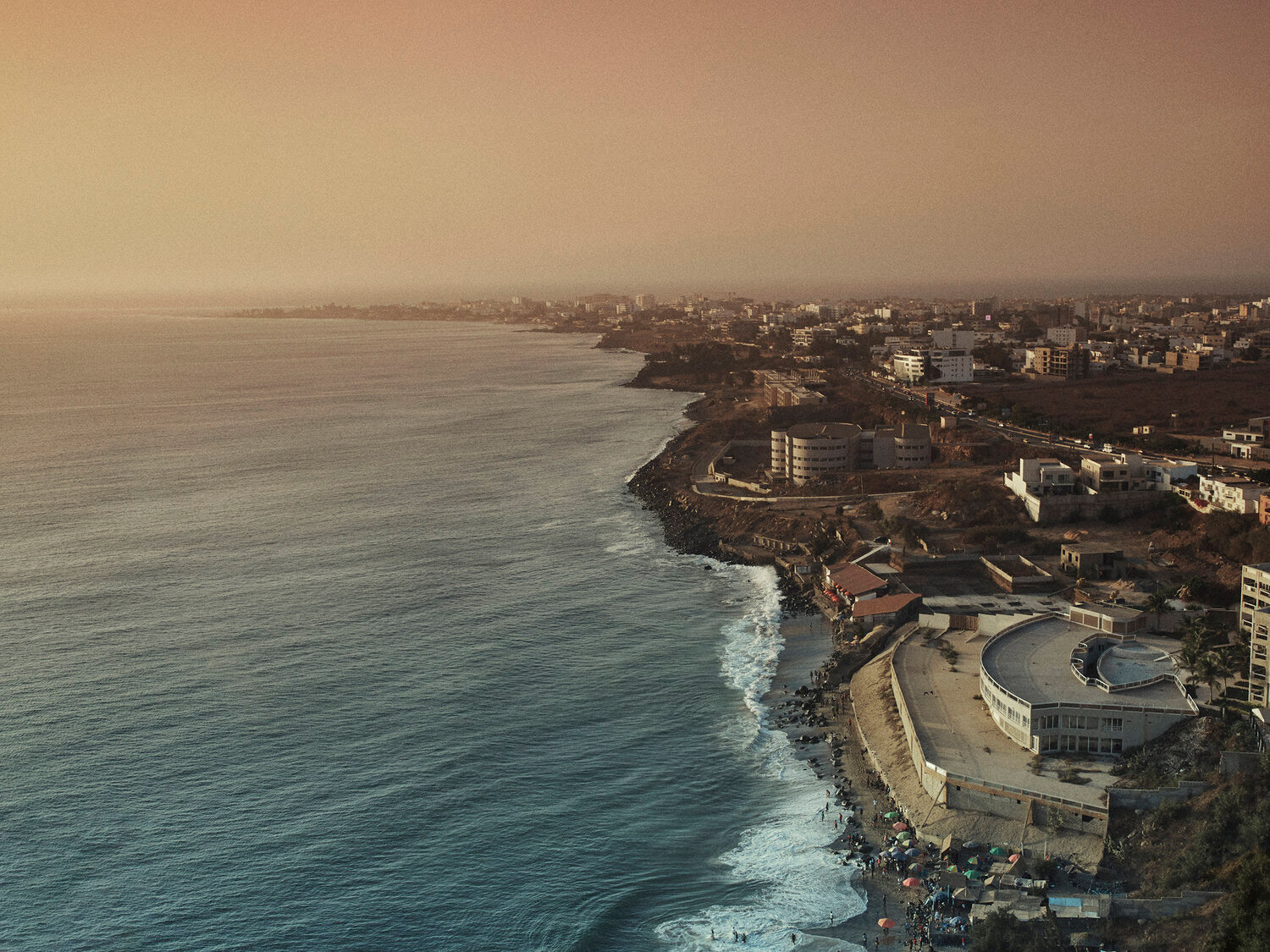
In the meantime, though, Rhonda continues to push for change in other avenues. There have always been great African surfers, she says, but they haven’t always had the recognition they needed to make the leap to professional success. One issue, she contends, is the colonial view of all things African. “The [Western] media always wants to think of Africa, the continent, as fly-in-the-eye kind of poverty,” she says. “They don’t really look at the progression of the continent. They don’t realise that Cape Town in South Africa looks exactly like California, or downtown Dakar looks like downtown Los Angeles.”
Dave recalls a similar feeling during his trip to Yoff. Later in the day when he was shooting with BGS, he headed to the south side of the peninsula to take in the view. “I was waiting for the sun to set and shooting a frame every minute or two as the sun swept across the landscape,” he says. “It reminded me of being in LA or Portugal’s West Coast and I realised I was shooting a landscape on the most westerly point of the continent of Africa. The colours were deep and saturated and I had that feeling you get on holiday when you’ve spent time in the sun and sea and OD’d on vitamin D and the world feels like a great place.”
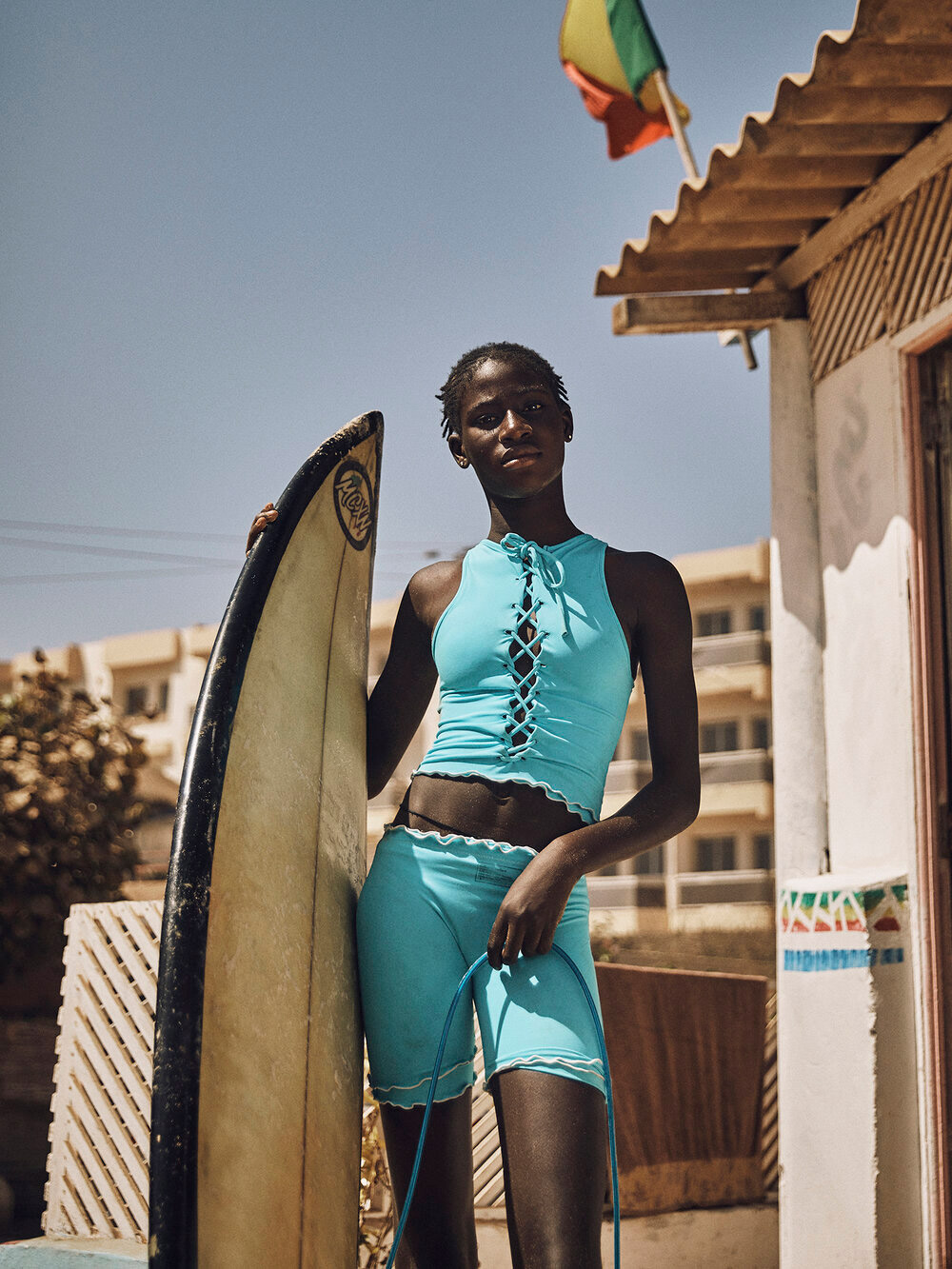
To Rhonda, this portrait of familiarity and sense of peace, however, is all too rare. “[The West] doesn’t see it because they just want to see the poverty – they want to heal, they want to save. And African people realise that Europeans will come down and use them for whatever products they have to promote – put a bar of surf wax in a kid’s hand, take a picture and put it on their website, like they’re really doing something. They didn’t do anything for that child, but they just made a million dollars from that photo.”
Instead of simply bemoaning surface-level marketing tactics, Rhonda suggests donating money or equipment to organisations like Surfing South Africa, that country’s governing body for the sport, or the Sierra Leone Surfing Association. She cites getting surfboards as one of the big hurdles for enthusiasts and would-be competitors; most are made overseas and far more than in industry hubs like California and Australia. And despite the challenges and what she describes as heartbreak, Rhonda has also seen dramatic change since she created the BGS club in Ngor two years ago. “It’s amazing to see what happened there,” she says. “This is the strength of women. Right?”
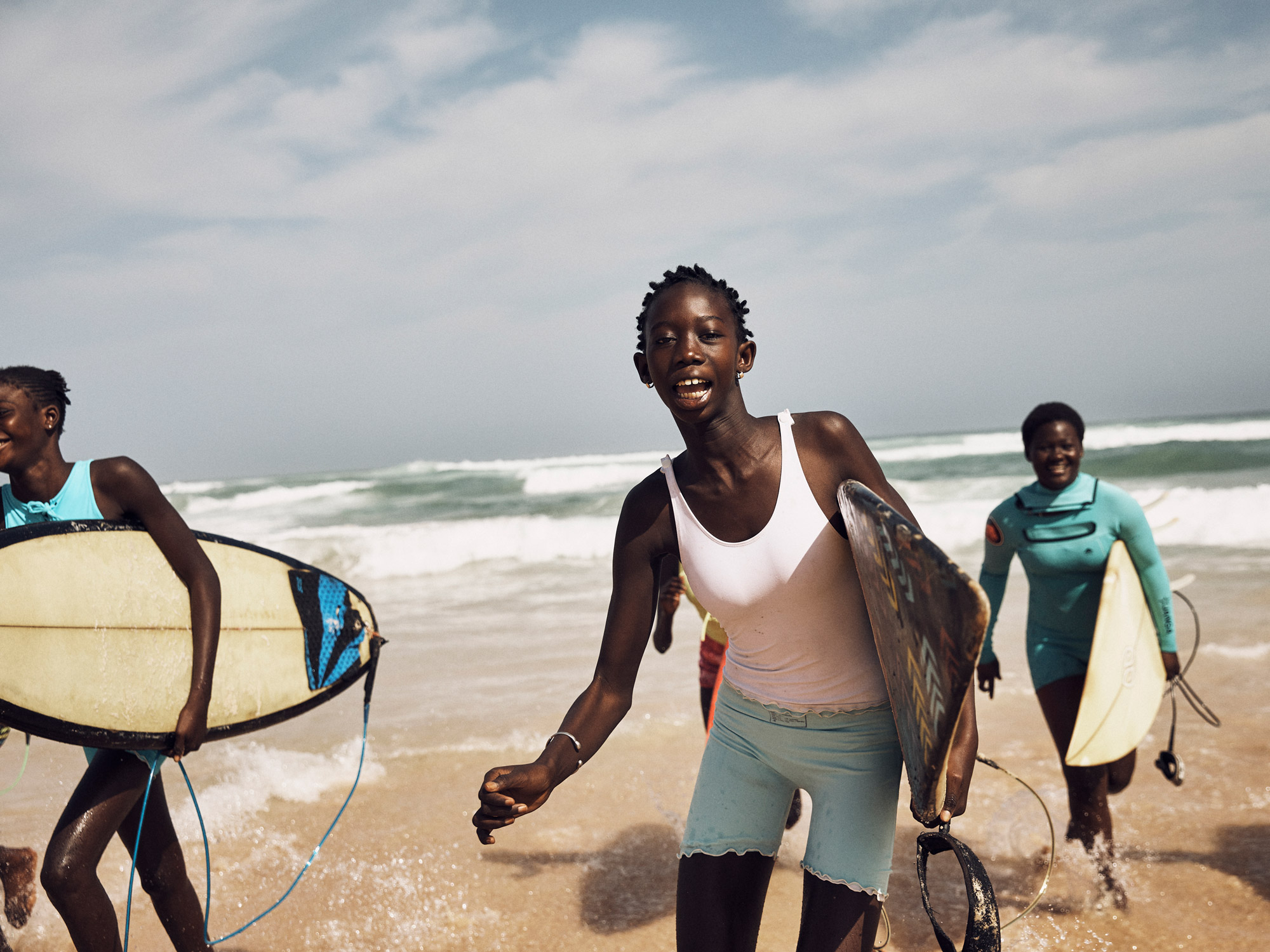
Editorial Design Root

